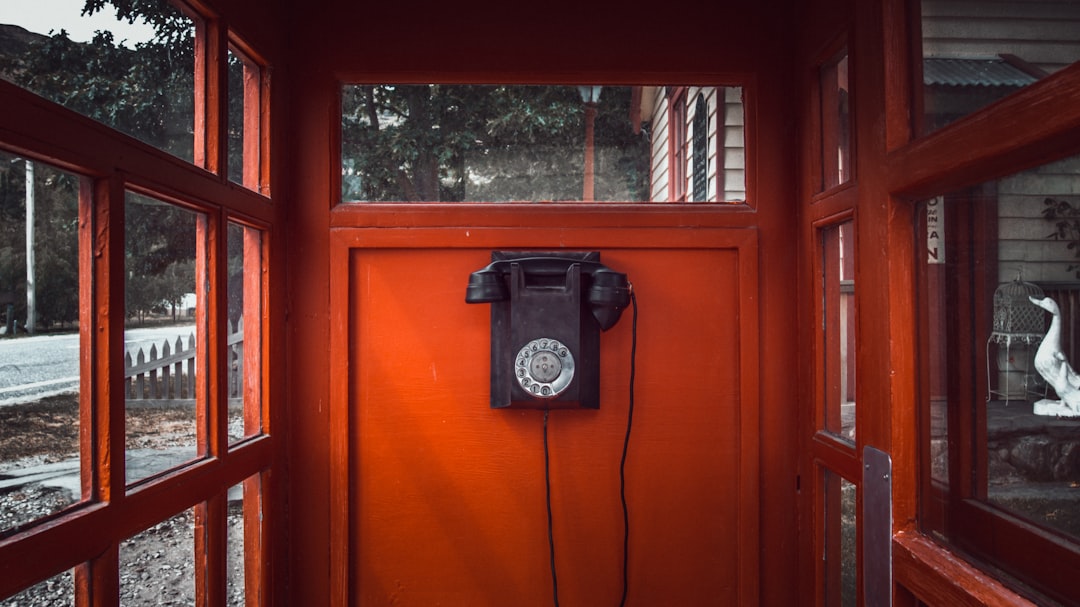In Louisiana, stringent anti-spam laws protect residents from unwanted phone calls. Take measures like registering on the Do Not Call list and consulting a specialized lawyer to block spam calls and safeguard privacy. Identify autodialer spam by looking for unusual timing, distorted voices, vague language, music, or opt-out prompts. DIY strategies include blocking numbers, using apps, and adjusting phone settings. For persistent issues, consult with a local consumer rights attorney specializing in the Telephone Consumer Protection Act (TCPA). Engage a reputable How To Stop Spam Calls Lawyer LA for cease-and-desist letters, complaints, legal action, or negotiations to secure relief and deter future violators. Document interactions and seek guidance for robust enforcement of anti-spam laws.
In Louisiana, the use of autodialers for telemarketing without prior express consent is prohibited under strict anti-spam laws. This comprehensive guide helps you navigate your rights and protect yourself from unwanted calls. Learn how to identify autodialer spam, implement DIY strategies to stop them, and understand when to seek legal assistance from a qualified attorney or law firm in Louisiana specializing in combating spam calls. Discover effective communication tactics and long-term solutions to stay protected.
- Understanding Louisiana's Anti-Spam Laws: Your Rights and Protections
- Identifying Autodialer Spam Calls: What to Look Out For
- Steps to Stop Spam Calls: Do-It-Yourself Strategies
- When to Involve a Lawyer: Legal Recourse Against Spam Callers
- Choosing the Right Attorney: Finding Expertise in Stopping Spam
- The Role of Law Firms in Combating Unwanted Telemarketing
- Effective Communication: How to Respond When You Get a Spam Call
- Staying Protected: Long-term Solutions and Prevention Tips
Understanding Louisiana's Anti-Spam Laws: Your Rights and Protections
In Louisiana, the use of autodialers for unsolicited phone calls, commonly known as spam calls, is regulated by strict anti-spam laws designed to protect consumers from unwanted and intrusive marketing practices. These laws empower residents to take action against such activities and safeguard their privacy. If you’re receiving persistent spam calls, understanding your rights under Louisiana law is the first step towards putting a stop to it.
Louisiana’s anti-spam legislation grants citizens the right to refuse and block automated phone calls from telemarketers or any unauthorized sources. Consumers can take several measures to curb spam calls, including registering their phone number on the state’s Do Not Call list, which restricts commercial calls, and seeking legal advice from a qualified attorney specializing in telecom regulations. A lawyer for stop spam calls in LA can guide you through the process of filing complaints with relevant authorities and pursuing legal action if necessary.
Identifying Autodialer Spam Calls: What to Look Out For
Identifying autodialer spam calls can be tricky, but there are several telltale signs to look out for. These calls often originate from automated systems that use pre-recorded messages or live operators to deliver unsolicited marketing messages in bulk. One of the most obvious indicators is receiving a call from an unknown number, especially if it’s repeated and occurs at unusual hours. Spammers frequently target areas with high cell phone usage, like urban centers, so if you’re in Louisiana and notice a surge of these calls, it might be worth investigating.
Another way to identify spam calls is by listening for typical patterns. Automated messages may have distorted or robotic voices, use vague or enticing language, and play music or jingles between speakers. The call might also prompt you to press specific numbers on your keypad to ‘opt-out’ or ‘stop calling,’ which is a common tactic to confirm active phone lines for further marketing efforts. If you suspect an autodialer, consider using blocking apps or contacting a lawyer specializing in stop spam calls in Louisiana to understand your rights and available legal options.
Steps to Stop Spam Calls: Do-It-Yourself Strategies
If you’re tired of receiving unwanted autodialed calls in Louisiana, there are several DIY strategies you can employ to challenge and stop them. Start by registering your number on the National Do Not Call Registry. This federal list restricts telemarketers from calling landlines or mobile phones for marketing purposes. It’s a simple first step that can significantly reduce spam calls.
Next, consider adjusting your phone settings. Most devices offer options to block unknown or unwanted callers. Enable these features and customize them to suit your needs. Additionally, review the apps on your smartphone; there are dedicated applications designed to filter out spam calls and texts. Installing one of these could provide a robust layer of protection. Don’t hesitate to consult with a Louisiana-based lawyer specializing in consumer rights if these measures aren’t enough, as they can guide you through legal options available for stopping persistent spam calls.
When to Involve a Lawyer: Legal Recourse Against Spam Callers
If you’re dealing with relentless spam calls and have exhausted other methods to stop them, it might be time to involve a legal professional. In Louisiana, understanding your rights and options against unwanted autodialed or robocallers is essential. A lawyer specializing in consumer protection or telecommunications law can provide crucial guidance on how to proceed.
Hiring an attorney who practices in this area offers several advantages. They can help you navigate the complexities of existing laws, such as the Telephone Consumer Protection Act (TCPA), designed to curb spam calls. Legal recourse may include sending cease and desist letters, filing formal complaints with regulatory bodies, or even pursuing litigation if the behavior continues despite your requests. How To Stop Spam Calls lawyers and attorneys in LA are equipped to handle these situations, ensuring you receive fair compensation for any distress caused by the unwanted calls and setting a precedent to deter future violators.
Choosing the Right Attorney: Finding Expertise in Stopping Spam
Choosing the right attorney is a crucial step when tackling unwanted autodialer calls in Louisiana. When seeking legal counsel on how to stop spam calls, it’s essential to find a lawyer or law firm with specialized expertise in telecommunications law and consumer protection. Look for professionals who have experience handling cases related to nuisance calls and can guide you through the legal process effectively.
In Louisiana, there are numerous law firms dedicated to assisting clients in navigating privacy laws and stopping unsolicited phone marketing. A skilled attorney from a reputable How To Stop Spam Calls law firm LA can help you understand your rights under state and federal regulations, such as the Telephone Consumer Protection Act (TCPA). They will employ strategic approaches, including sending cease-and-desist letters, filing legal actions, or negotiating with call centers to secure relief and prevent future spam calls.
The Role of Law Firms in Combating Unwanted Telemarketing
Law firms play a pivotal role in combating unwanted telemarketing and protecting consumers from spam calls in Louisiana. With their expertise in telecommunications law, these legal professionals can guide individuals on how to stop spam calls effectively. Many law firms specializing in consumer rights offer services tailored to help clients navigate the complexities of blocking unauthorized autodialers. They provide practical solutions, such as assisting with do-not-call list registrations and representing consumers in legal actions against violators.
By employing the expertise of a lawyer for stop spam calls LA, residents can gain access to powerful tools and resources. These attorneys can help draft cease and desist letters, file official complaints, or even initiate legal proceedings against companies engaging in aggressive telemarketing practices. Their intervention ensures that consumers’ rights are respected, empowering them to take control over their communication preferences and privacy.
Effective Communication: How to Respond When You Get a Spam Call
When you receive a spam call from an autodialer, it’s important to remember that effective communication can help resolve the issue efficiently. The first step is to understand that these calls are typically generated by automated systems aiming to reach as many numbers as possible. By not engaging or providing any information, you’re sending a strong signal that these calls are unwanted. Simply hang up without saying anything; this action registers your number as opt-out, reducing future autodialed calls.
If you choose to respond verbally, keep it brief and firm. You can say something like, “No, I don’t want this call,” or “Stop calling.” Some states, including Louisiana, have laws that limit telemarketing practices, and explicitly requesting to be removed from the caller’s list is a crucial step in enforcing these rules. Consider keeping a record of such calls, as it may assist a how to stop spam calls lawyer LA or attorney in taking necessary legal action if your rights are violated.
Staying Protected: Long-term Solutions and Prevention Tips
Staying Protected involves implementing long-term solutions and adopting prevention tips to combat autodialer spam calls effectively. One crucial step is to register your number with the National Do Not Call Registry. This federal list restricts telemarketers from calling landlines or mobile phones on the list, offering some relief from unsolicited calls. Additionally, consider installing reputable call-blocking apps or software that can identify and block known spam numbers. Regularly reviewing and updating these tools ensures maximum protection against evolving spamming techniques.
For comprehensive defense, consult with a lawyer specializing in consumer protection or privacy law in Louisiana. A how to stop spam calls lawyer LA can guide you through legal options, such as suing telemarketers for invasion of privacy or seeking collective action through class-action lawsuits. They might also suggest contacting your service provider for additional blocking mechanisms and reporting suspected spam activities to relevant authorities.






